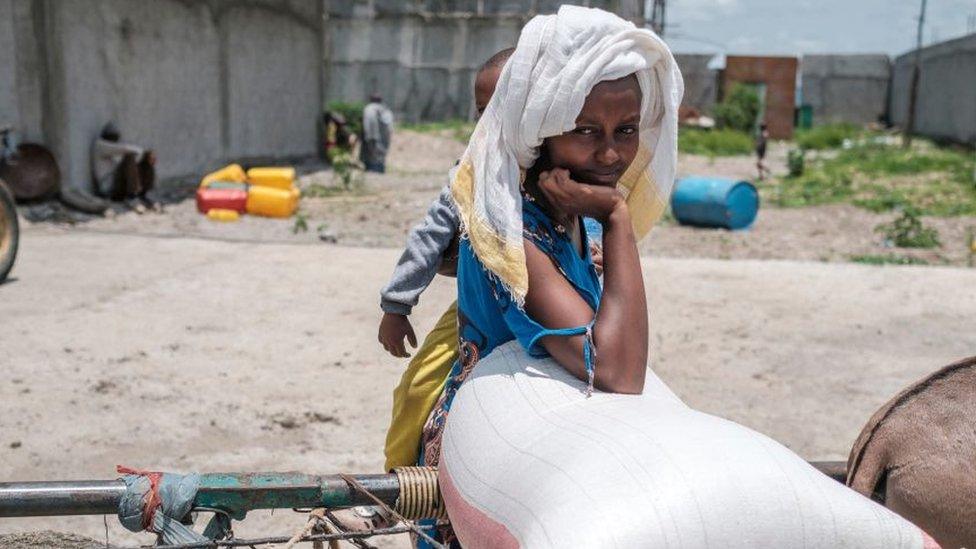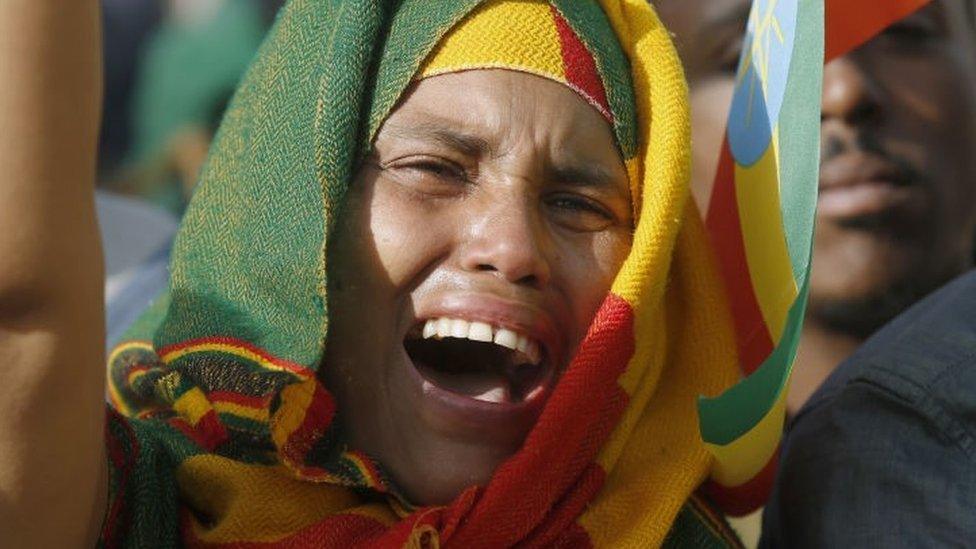Ethiopia's Tigray crisis: Millions at risk under aid blockade - UN
- Published

Some aid has reached the north, like this delivery in Amhara, but the UN says it is not enough
The lives of millions of Ethiopians in the north of the country are under threat as aid supplies are not reaching the conflict-hit area, the UN has said.
In a stark warning, it said that there was in effect an aid blockade on the Tigray region.
A spokesperson for the government has denied that supplies are being halted.
Ten months of fighting between the federal army and its allies and Tigray rebel forces has left many in desperate need of assistance.
"The lives of millions of civilians... depend on our capacity to reach them with food, nutrition supplies, medicine and other critical assistance,", external Grant Leaity, the UN's acting humanitarian coordinator for Ethiopia, said.
The UN estimates that 5.2 million people need urgent assistance if "the world's worst famine situation in decades" is to be averted.
Although aid can now move more easily than before within Tigray itself, there is a problem getting aid trucks into the region, according to Mr Leaity.
The only viable land route at the moment is through the neighbouring Afar region, but he says that logistical and bureaucratic hold-ups have led to long delays.
Aid workers say that 100 trucks carrying provisions need to get into Tigray every day but not a single one has got through since 22 August.
Aid agencies have run out of food for distribution in most areas.
Mr Leaity called on the Ethiopian government to allow the unimpeded entry of aid supplies and personnel.
In the past, the government has denied that it was blocking aid but said it was concerned about security.


Speaking to journalists in the capital, Addis Ababa, on Thursday, the prime minister's spokesperson Billene Seyoum said trucks were "en route" to Tigray, the Reuters news agency reports.
She added that the number of checkpoints had actually been reduced.
The conflict began last November after months of feuding between Prime Minister Abiy Ahmed's government and leaders of Tigray's dominant political party, the Tigray People's Liberation Front (TPLF).
Thousands are thought to have been killed and millions have been forced from their homes, with some fleeing into Sudan.
Fighting has now spread into the neighbouring Ethiopian regions of Afar and Amhara.
Earlier this week, the head of the US government's humanitarian agency said Tigrayan forces had looted its warehouse in Amhara.
The TPLF, which the government describes as a terrorist organisation, did not respond to the allegations.

More on the Tigray crisis:

Related topics
- Published30 August 2021
